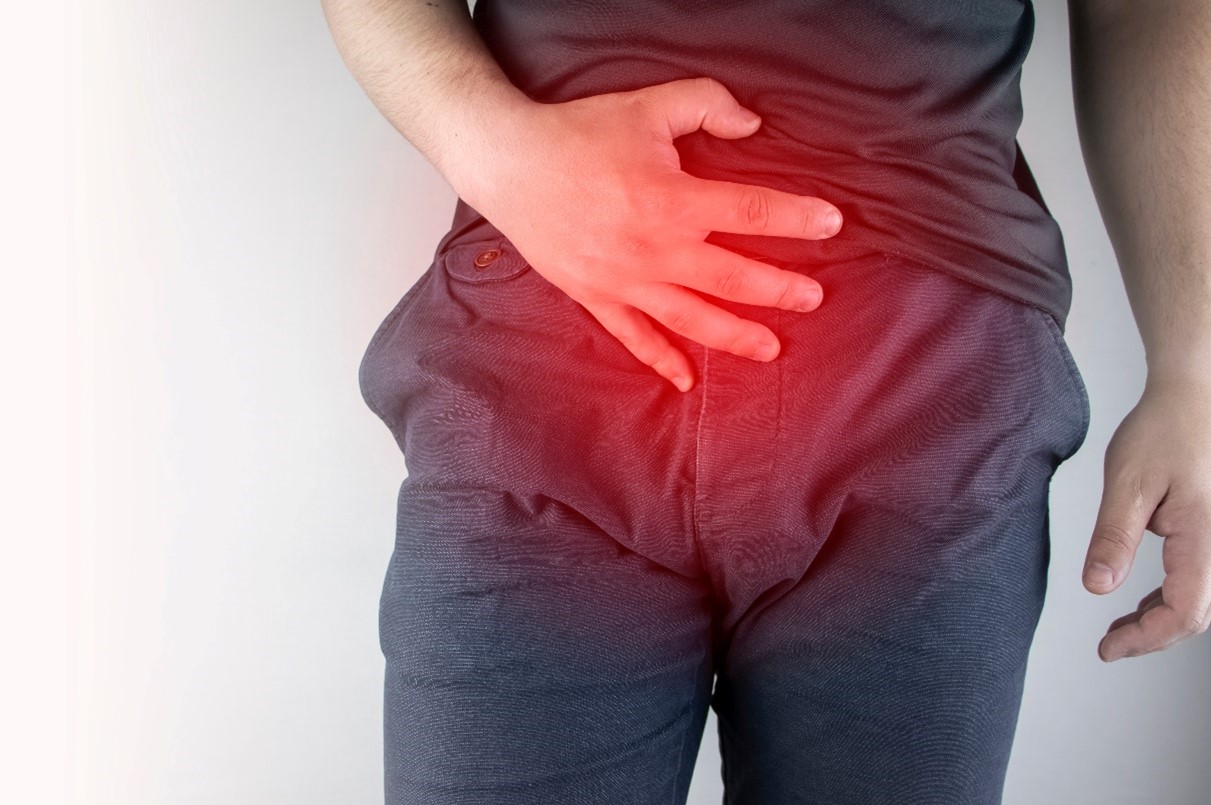An inguinal hernia develops when part of your internal tissue, usually the intestine, pushes through a weak spot in your lower abdominal muscles near the groin.
This results in a visible bulge that becomes more pronounced when you stand or engage in activities that increase abdominal pressure, such as lifting heavy items or coughing.
This condition can cause discomfort and, if left untreated, may lead to complications.
It's important to seek medical evaluation if you notice a bulge or experience pain in this area, as early diagnosis can help manage symptoms and prevent serious issues.
Causes and Risk Factors
There are two main types of inguinal hernias.
Indirect hernias are usually present from birth and occur if the inguinal canal doesn’t close properly before birth.
Direct hernias develop later in life due to muscle weakness in the abdomen.
Factors that can increase your risk include being male, getting older, having a family history of hernias, engaging in activities that strain the abdomen, chronic coughing, and, for women, pregnancy.
Recognizing Symptoms
Pain or discomfort in the groin, especially when bending over, coughing, or lifting, is common.
Men might also feel pain around the testicles.
If the hernia affects the intestine, you might feel sick to your stomach.
Treatment Options
Getting diagnosed usually involves a simple physical check where a doctor will look for a bulge in the groin area. They might ask you to stand or cough to see the hernia better.
If it’s hard to diagnose just by looking, an ultrasound or other imaging tests might be used.
Small hernias that don’t cause much pain might not need immediate treatment other than regular check-ups.
Larger or painful hernias usually need surgery to fix the weak muscle area and prevent the hernia from getting worse.
When to Seek Help
If your hernia suddenly becomes very painful, can't be pushed back in, turns red or tender, or if you develops a fever, nausea, or vomiting, these could be signs of a serious complication like an incarcerated or strangulated hernia.
This is an emergency indication where the blood supply to the hernia is cut off, and you should seek medical help immediately.
"Experiencing discomfort in your groin area? Schedule a consultation with your doctor to explore your treatment options."




